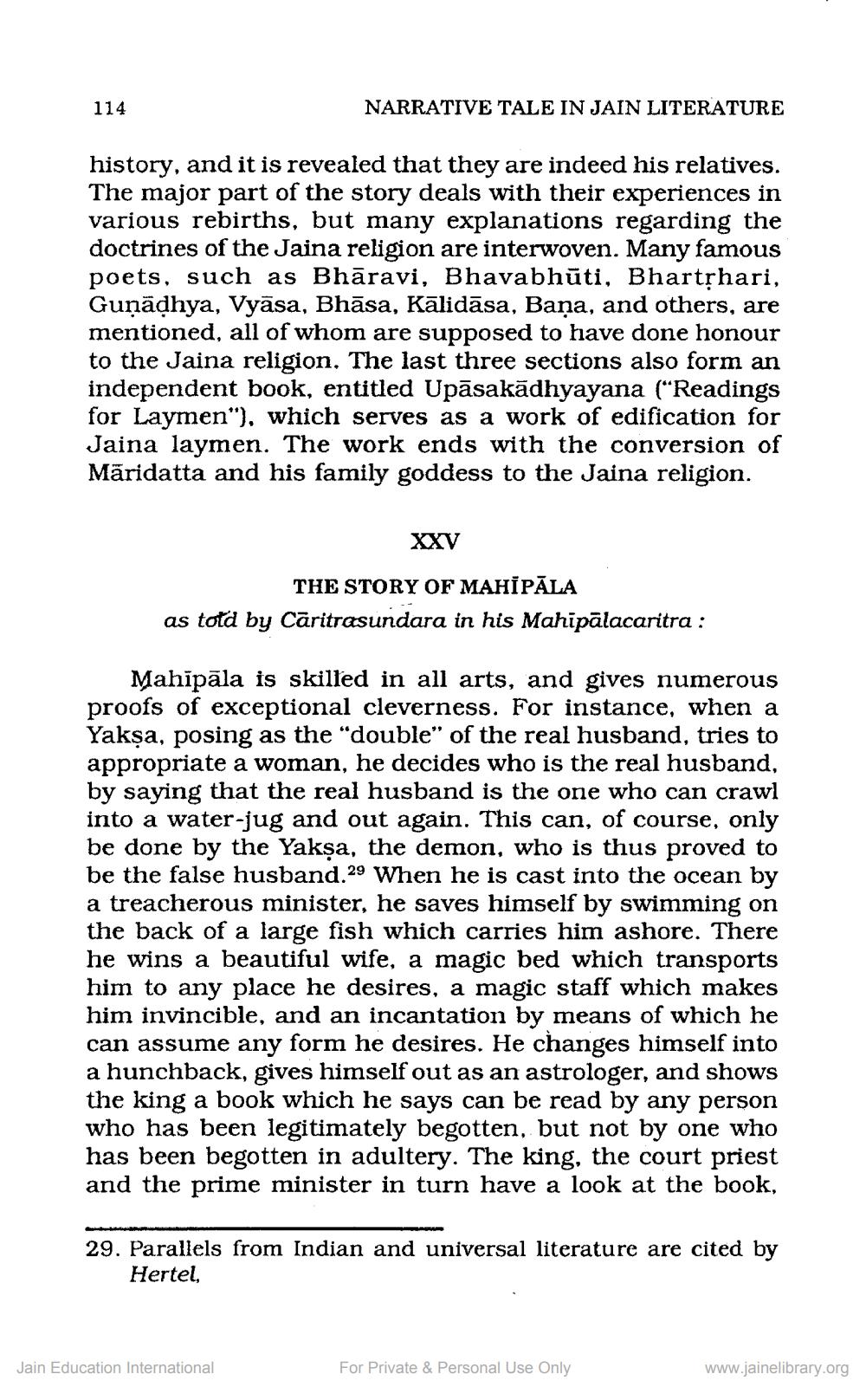________________
114
NARRATIVE TALE IN JAIN LITERATURE
history, and it is revealed that they are indeed his relatives. The major part of the story deals with their experiences in various rebirths, but many explanations regarding the doctrines of the Jaina religion are interwoven. Many famous poets, such as Bhāravi, Bhavabhūti, Bhartrhari, Guņādhya, Vyāsa, Bhāsa, Kālidāsa, Baņa, and others, are mentioned, all of whom are supposed to have done honour to the Jaina religion. The last three sections also form an independent book, entitled Upāsakādhyayana ("Readings for Laymen"), which serves as a work of edification for Jaina laymen. The work ends with the conversion of Māridatta and his family goddess to the Jaina religion.
XXV
THE STORY OF MAHIPĀLA as totd by Caritrasundara in his Mahipālacaritra :
Mahīpāla is skilled in all arts, and gives numerous proofs of exceptional cleverness. For instance, when a Yakşa, posing as the "double" of the real husband, tries to appropriate a woman, he decides who is the real husband, by saying that the real husband is the one who can crawl into a water-jug and out again. This can, of course, only be done by the Yakşa, the demon, who is thus proved to be the false husband.29 When he is cast into the ocean by a treacherous minister, he saves himself by swimming on the back of a large fish which carries him ashore. There he wins a beautiful wife, a magic bed which transports him to any place he desires, a magic staff which makes him invincible, and an incantation by means of which he can assume any form he desires. He changes himself into a hunchback, gives himself out as an astrologer, and shows the king a book which he says can be read by any person who has been legitimately begotten, but not by one who has been begotten in adultery. The king, the court priest and the prime minister in turn have a look at the book,
29. Parallels from Indian and universal literature are cited by
Hertel,
Jain Education International
For Private & Personal Use Only
www.jainelibrary.org




